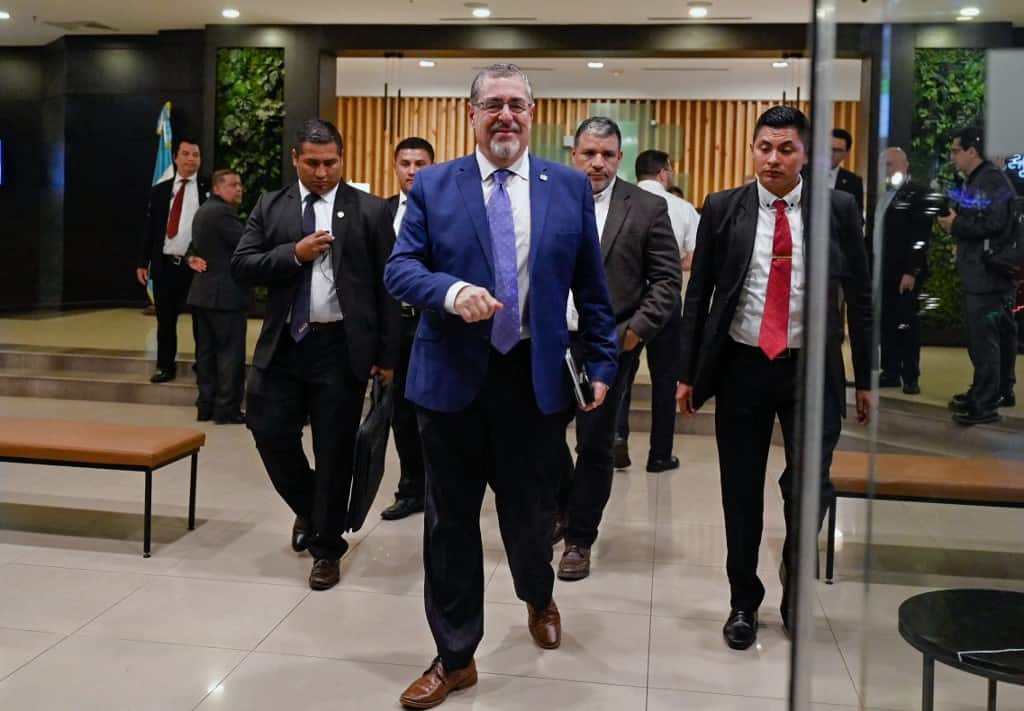Guatemala’s president-elect, the social democrat Bernardo Arévalo, will ask the justice system this Monday to dismiss Attorney General Consuelo Porras, whom he accuses of orchestrating a “coup d’etat” to prevent him from taking power in January.
Arévalo called on his supporters to accompany him this Monday to the headquarters of the Supreme Court to formally present an injunction requesting Porras’s dismissal.
“Together, we will present an injunction and say emphatically #OutCoupPlotters. Bring your blue and white [Guatemalan] flag and defend the right to build a better future,” said Arévalo in his call disseminated on social media.
Hours before the filing of the request, thousands of indigenous people, students and other activists demonstrated in several cities across the country to demand the resignation of Porras and two other controversial prosecutors and a judge.
In the capital, hundreds of indigenous people from the western department of Totonicapán, carrying plastic whistles and trumpets, marched through several streets demanding the removal of the attorney general.
In his appeal, Arévalo will also request the departure of prosecutor Rafael Curruchiche, who is leading controversial investigations against Arévalo’s Semilla party.
He will also request the removal of Judge Fredy Orellana, who has ordered raids on the headquarters of Semilla and the Supreme Electoral Tribunal, further stirring the country’s political climate.
Porras, Curruchiche and Orellana are included on a list compiled by the United States of “corrupt and anti-democratic” Central American figures.
With his promise of a frontal fight against corruption, one of the country’s ills, Arévalo won a broad victory in the August 20 runoff. But his rise to power awakens fears among powerful political and business sectors.
Last week, Curruchiche led a raid, with dozens of police officers, on an electoral center where prosecutors opened boxes containing votes from the first round of elections on June 25.
According to the prosecutor, the operation arose from a citizen’s complaint, but the action was rejected by several sectors in Guatemala and by the international community. The United States described it as “an attack on the democratic process.”
For its part, the Public Prosecutor’s Office rejected the accusation of orchestrating a “coup d’etat”. “Any claim that seeks to implicate the Public Prosecutor’s Office in the outcome of the electoral event is categorically rejected,” the entity stated.






